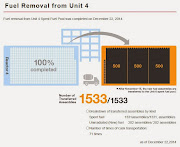Rasmussen's Presidential Tracking Poll, which surveys likely voters and which is calculated as difference between "Strongly Approve" and "Strongly Disapprove", is -21 today, tying the all-time low for this president.
Even the more mainstream Gallup's Obama Job Approval shows a clear crossover: 48% Disapprove, 46% Approve.
TA (technical analysis) on Rasmussen's "Strongly Disapprove": it looks like it is about to break to the upside, after several months of basing and forming "a cup". We will see if it forms "a handle" part. The cup with handle is a bullish, continuation formation, and it could happen without a handle. The target would be the depth of the cup, so it would be about 50%.
What could trigger the upside breakout? The health care "reform" bill passed without even a vote on the bill would be a good candidate, among so many others...
Friday, March 19, 2010
Approval Rate New Low for Obama
Monday, March 15, 2010
US, UK Move Closer to Losing AAA Credit Rating
says Moody's Investors Service, and the stock market swooned just for the show I guess, and reversed back to end up in green (except for Nasdaq). "What's the big deal?" the market seems to be saying.
U.S., U.K. Move Closer to Losing Rating, Moody’s Says
(3/15/2010 Bloomberg)
"March 15 (Bloomberg) -- The U.S. and the U.K. have moved “substantially” closer to losing their AAA credit ratings as the cost of servicing their debt rose, according to Moody’s Investors Service.
"The governments of the two economies must balance bringing down their debt burdens without damaging growth by removing fiscal stimulus too quickly, Pierre Cailleteau, managing director of sovereign risk at Moody’s in London, said in a telephone interview.
"Under the ratings company’s so-called baseline scenario, the U.S. will spend more on debt service as a percentage of revenue this year than any other top-rated country except the U.K., and will be the biggest spender from 2011 to 2013, Moody’s said today in a report.
"“We expect the situation to further deteriorate in terms of the key ratings metrics before they start stabilizing,” Cailleteau said. “This story is not going to stop at the end of the year. There is inertia in the deterioration of credit metrics.”
"The U.S. government will spend about 7 percent of its revenue servicing debt in 2010 and almost 11 percent in 2013, according to the baseline scenario of moderate economic recovery, fiscal adjustments in line with government plans and a gradual increase in interest rates, Moody’s said. [emphasis is mine]
"Under its adverse scenario, which assumes 0.5 percent lower growth each year, less fiscal adjustment and a stronger interest-rate shock, the U.S. will be paying about 15 percent of revenue in interest payments, more than the 14 percent limit that would lead to a downgrade to AA, Moody’s said." [The article continues.]
The baseline debt service scenario is still assuming moderate economic recovery which may or may not happen, and fiscal adjustment in line with government plans (when is the last time things happened in line with government plans?). In other words, Moody's' baseline scenario is the best case scenario, and the more likely scenario may be the adverse one.
One thing is already happening right now: gradual increase in interest rates. Interest rates of Treasury bills, notes and bonds across the board have been creeping up. (For details, go to my other blog, treasuryauctionwatch.blogspot.com.)
We don't actually need the Federal Reserves' declaration that the fed funds rate will be raised (it's a guidance anyway, not that the Fed actually set the rate); the market is setting the Treasury rates higher, despite all the efforts by the concerned parties (the Federal Reserve, certain primary dealers - Goldman Sachs and J.P. Morgan Chase come to mind) to supress the rates and support the price (which amount to the same thing).
House Speaker Nancy Pelosi claims she has the votes to pass the health care "reform" that will burden the already over-burdened taxpayers. The administration claims the "reform" is budget-neutral, meaning it won't add to the deficit. It may be true, because all the cost is to be borne by the taxpayers out of their ever-shrinking pockets. If they dare pass the climate bill on top of the health care bill, there may be no recovery for the US economy, ever.
When the government butts in on the national economy like it has, it is a zero-sum game: the government takes away from the productive sector of the economy - private businesses and taxpayers - and distributes the loot among themselves under the pretence of giving it to the "poor", of creating "jobs".
"Each according to his ability, each according to his needs"? It may be a noble sentiment. But like the pilgrims found out the hard way, IT DOES NOT WORK. At all.



 Tokyo Time
Tokyo Time
![[Most Recent Quotes from www.kitco.com]](http://www.kitconet.com/charts/metals/gold/t24_au_en_usoz_2.gif)


